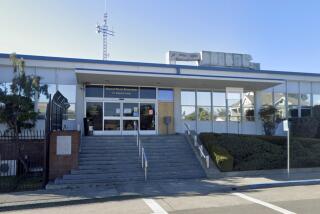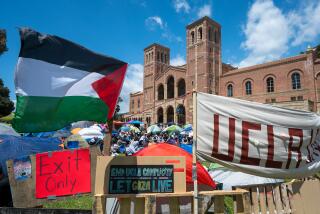ACLU, Lawyer to Get Voice on LAPD Decree
The federal judge overseeing reform of the Los Angeles Police Department agreed Monday to give the American Civil Liberties Union and a civil rights lawyer, Stephen Yagman, official voices in the process.
Attorneys for the city and the U.S. Justice Department, parties to a consent decree that placed the department under court oversight in 2000, had balked at allowing Yagman and the ACLU to intervene.
Patricia Glaser, a private lawyer representing the city, argued that adding parties to the case would complicate and impede implementation of the reforms.
The courtâs independent monitor âwill be undermined by everybody coming in and saying, âYour honor, what about this? What about that?â â Glaser told U.S. District Judge Gary A. Feess.
Feess said he is willing to give it a try. âI donât know how this is going to play out,â he said. âWeâll take it one step at a time.â
In April, a federal appeals court overruled Feess and stated that the Los Angeles Police Protective League had a legal right to participate because some of the reforms involve employee contract issues.
The court said, however, that Feess had been correct in denying mandatory intervention to individuals and community groups on grounds that, presumably, the government was protecting their interests. Nevertheless, the appellate court strongly encouraged Feess to allow the grass-roots groups to join the case, because âthey have suffered from the unconstitutional police misconduct that forms the basis of the United Statesâ suitâ against the LAPD.
Appearing before Feess on Monday, the ACLUâs legal director, Mark Rosenbaum, said giving community groups official status in the case with the right to file court motions would spur the Police Department to comply with the decree.
Rosenbaum cited a recent report by the courtâs independent monitor, Michael Cherkasky, that the department was out of compliance with 29 of 58 reforms required under the consent decree.
âThe hard facts are that this decree is not being effectively enforced,â the ACLU lawyer said.
Rosenbaum said that he did not mean to disparage the efforts of the Justice Department, the court monitor or Feess, but that effective enforcement of the reforms requires input from the community.
In addition to itself, the ACLU represents the Southern Christian Leadership Conference, Homeboy Industries, the Asian Pacific American Legal Center, Radio Sin Fronteres and 12 individuals.
Yagman said he wanted to intervene partly because of the wealth of information he has amassed from two decades of suing the LAPD for alleged civil rights violations. He also told Feess that issues raised in the consent decree case were likely to affect pending civil suits arising out of the Rampart Division police corruption scandal, in which officers were accused of unjustifiably beating, shooting and planting evidence on suspected gang members.
Yagman represents a large number of Rampart litigants. It was the Rampart case that triggered the Justice Departmentâs lawsuit that led to the consent decree.
More to Read
Sign up for Essential California
The most important California stories and recommendations in your inbox every morning.
You may occasionally receive promotional content from the Los Angeles Times.










